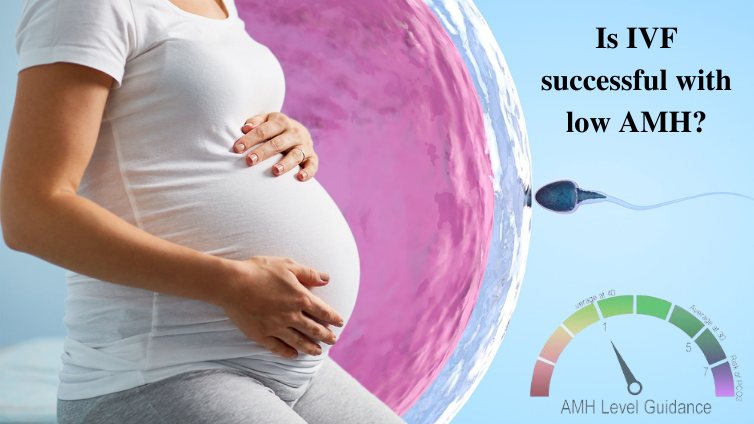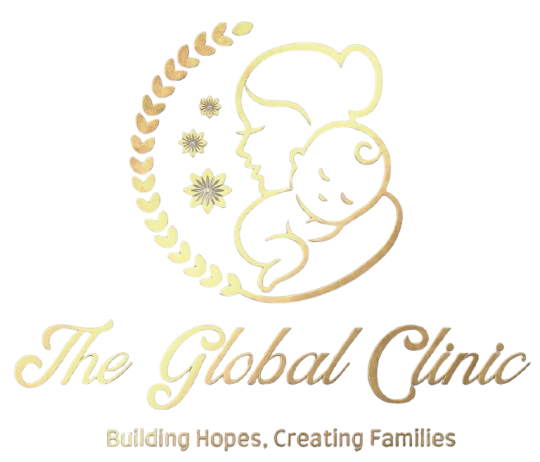Low AMH success tales in India affect women in their late 30s and early 40s. It becomes quite difficult to become pregnant with a healthy kid, and you seek medical advice. You could have a lot of questions for doctors, such as how to naturally raise AMH levels and if IVF would work for you. What are my options for obtaining fertility treatment? Is there any success with low AMH?
WHAT DOES LOW AMH MEAN?
To begin, the Best fertility & IVF specialist checks your blood hormone levels on the third day of your menstrual cycle to determine your reproductive potential. Women with low AMH levels should get their AMH levels tested. Ovarian reserve, or the quantity of follicle cells, is related to AMH levels. This is a method for doctors to estimate ovarian fertility for IVF. Each follicle is a fluid-filled sac that contains one immature egg and releases a mature egg during ovulation.
These conditions usually arise after puberty and are most noticeable throughout the reproductive years. It’s also worth noting that AMH levels are nearly undetectable once a woman reaches menopause.
It’s crucial to understand the typical AMH levels to comprehend low AMH levels and fertility therapy.
Before menopause, adult women’s AMH levels are as follows.
- AMH Blood Level Indicator of AMH Level
- More than 3.0 ng/ml High
- 1.0 ng/ml and higher Normal
- 1.0 ng/ml and higher Normal
- 0.7-0.9 ng/ml Below Average
- 0.3-0.6 ng/ml Low
THE METHOD
Low anti-Müllerian hormone (AMH) levels and fertility therapy begin with a blood test. Getting pregnant with low AMH levels is conceivable, which is why IVF is indicated for women with low AMH levels. According to research, the percentage of women under the age of 35 who were able to get pregnant spontaneously with low AMH levels ranged from 28 to 41 percent.
Low AMH levels make natural pregnancy possible. Many women are unable to use an egg donor because of financial constraints or a wish to have their biological kid. To do this, you must endeavour to improve the chances of IVF pregnancy for women with low AMH levels.
RAISE AMH LEVELS
How can I naturally raise my AMH levels? There are several natural, herbal-based remedies for low AMH, and a few studies show that certain herbs can help raise AMH levels. Curcumin, an effective medicinal ingredient found in turmeric, can naturally boost AMH levels. It helps to prevent early ovarian failure. Turmeric is a ginger family plant that is often used as a spice in cuisine. Turmeric tea may be made with it by steeping it in hot water. Fresh turmeric is also highly suggested for culinary preparation.
Unprocessed, nutrient-dense meals such as wild seafood, organic vegetables, grass-fed meat, and healthy fats can help raise low AMH levels.
Reduce your intake of fried meals, and omega-6 oils like maize, and soybeans.
MANAGEMENT OF LOW AMH
Low ovarian reserve therapy is inexpensive, and there are numerous Low AMH success stories in India of women who have completed the procedure. Low AMH is primarily associated with infertility, and treatment requires IVF in addition to hormone therapy. In addition, certain patients may be counselled that egg donation is a viable option to investigate. For a woman under the age of 38, a healthy AMH level for IVF is within the usual range. For ovaries to respond well to fertility drugs, a blood test to detect the levels of either FSH or AMH is required, as well as further professional guidance to determine whether IVF is the best treatment option.
CONCLUSION
Low AMH levels and fertility therapy are the best ideal answer for women, and IVF for women with low AMH levels may be properly done for effective outcomes with the guidance and supervision of doctors and health professionals. Low AMH IVF success stories show and corroborate that low AMH is no longer an urgent issue because there are medicines, IVF therapies, and a natural diet that may assist improve AMH levels.
If you have any queries or seeking a Best IVF Doctor In Greater Noida, Consult Dr.Ramya Mishra Shukla.



